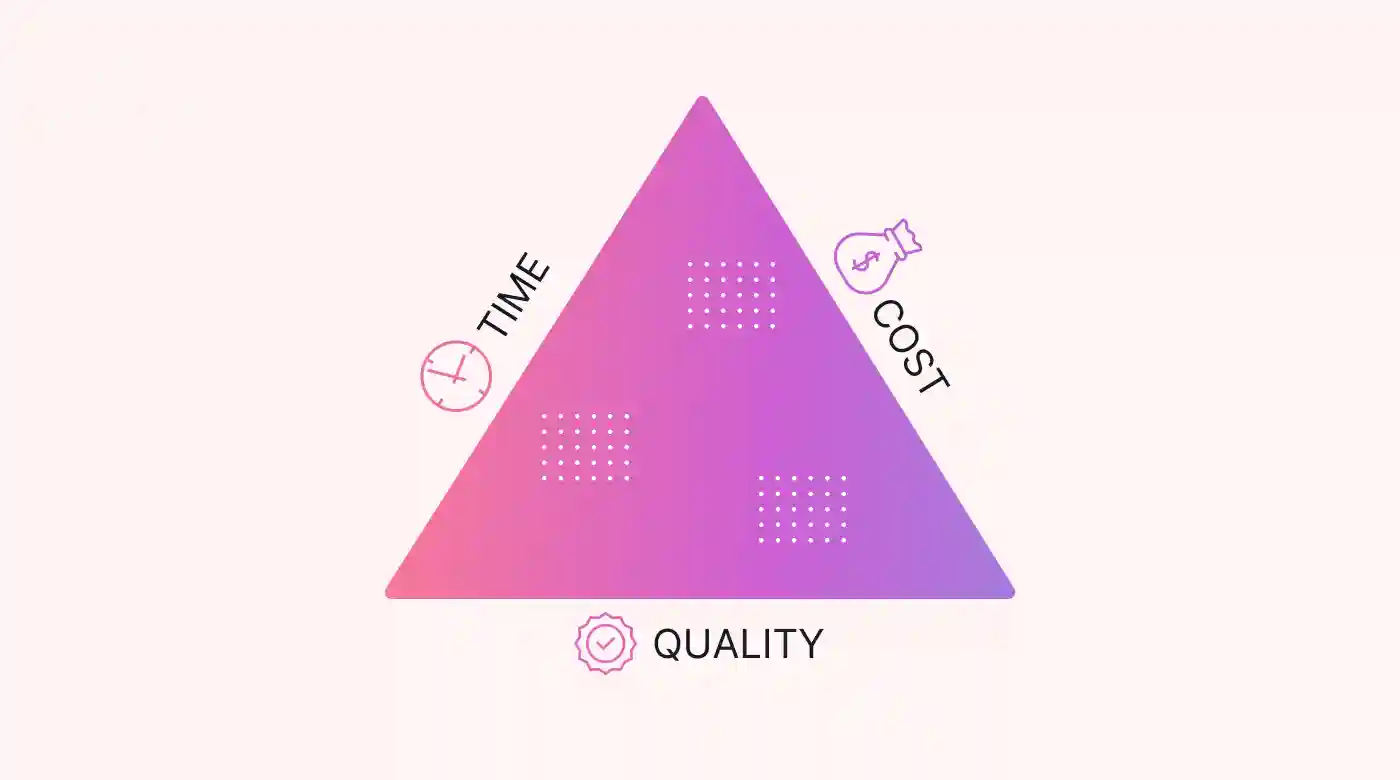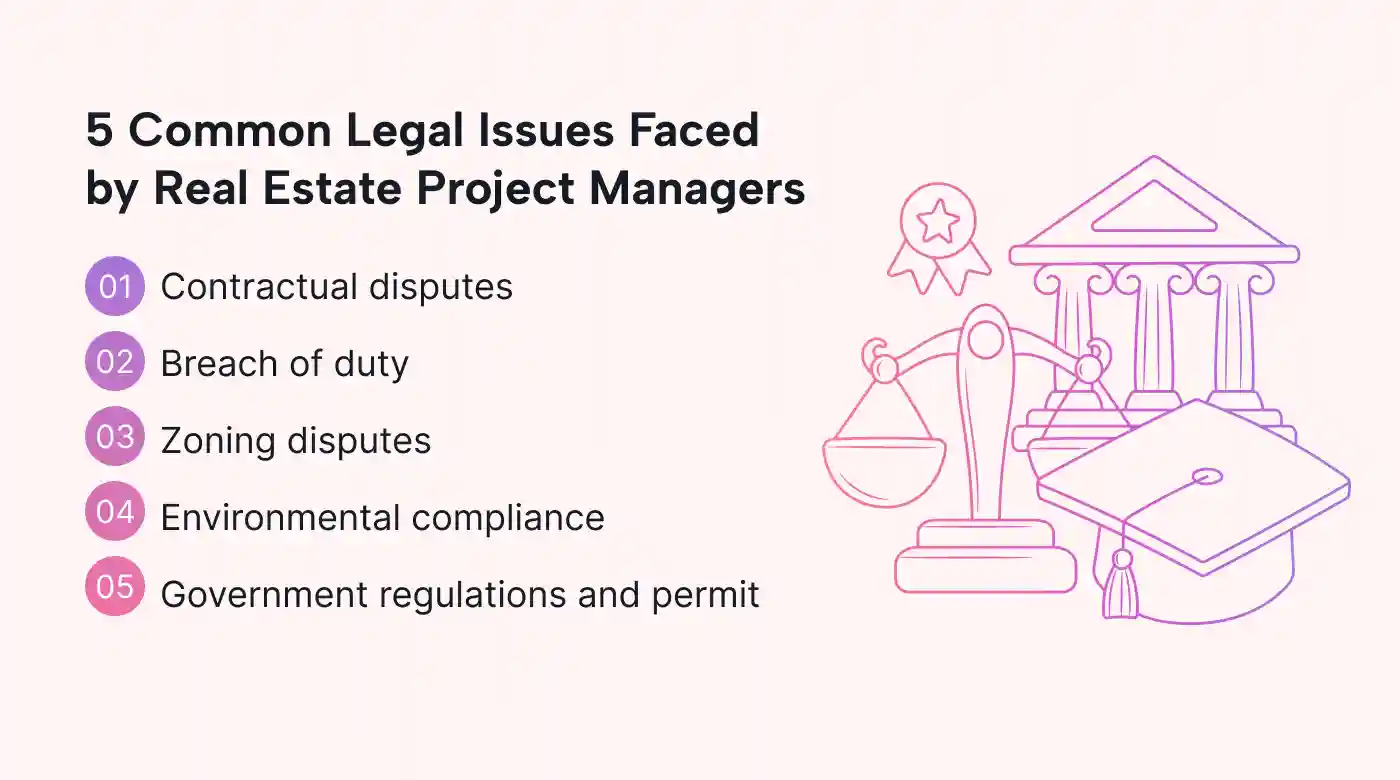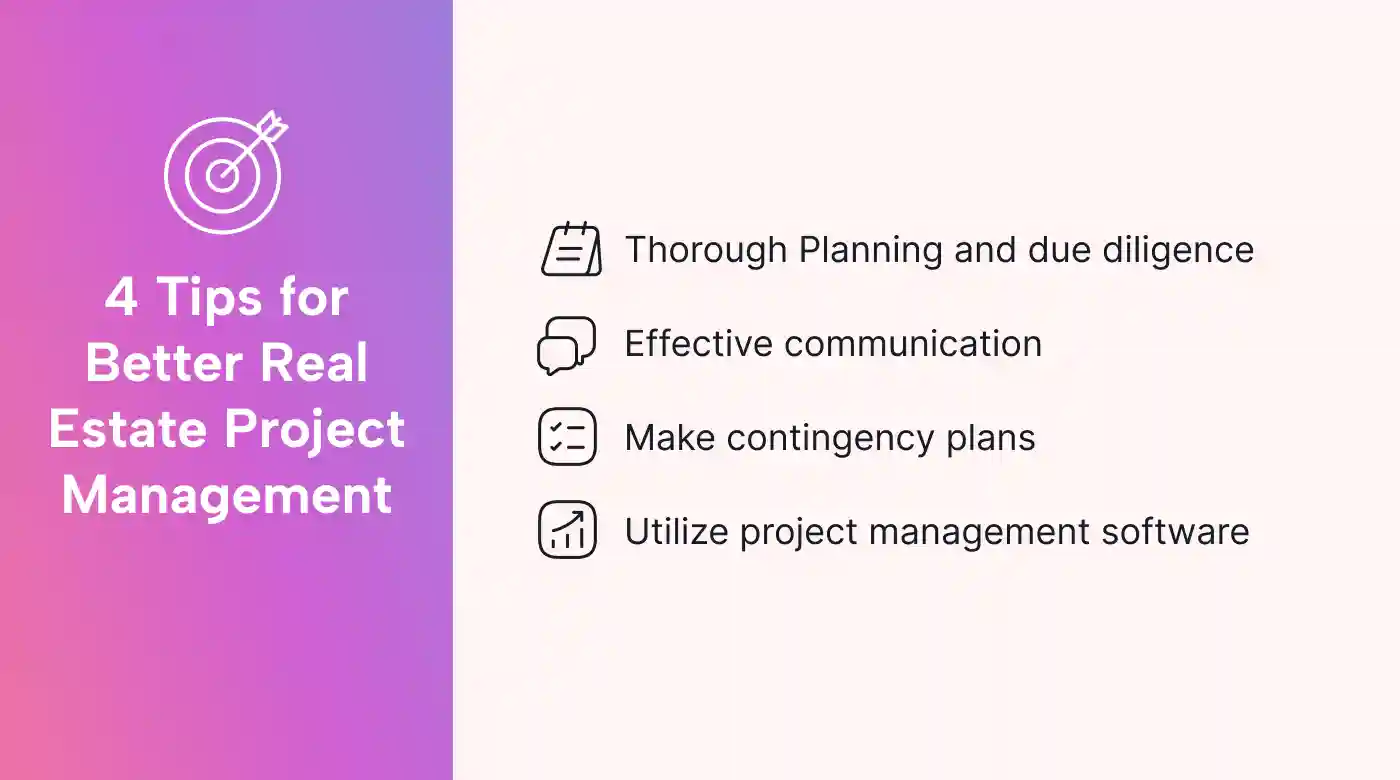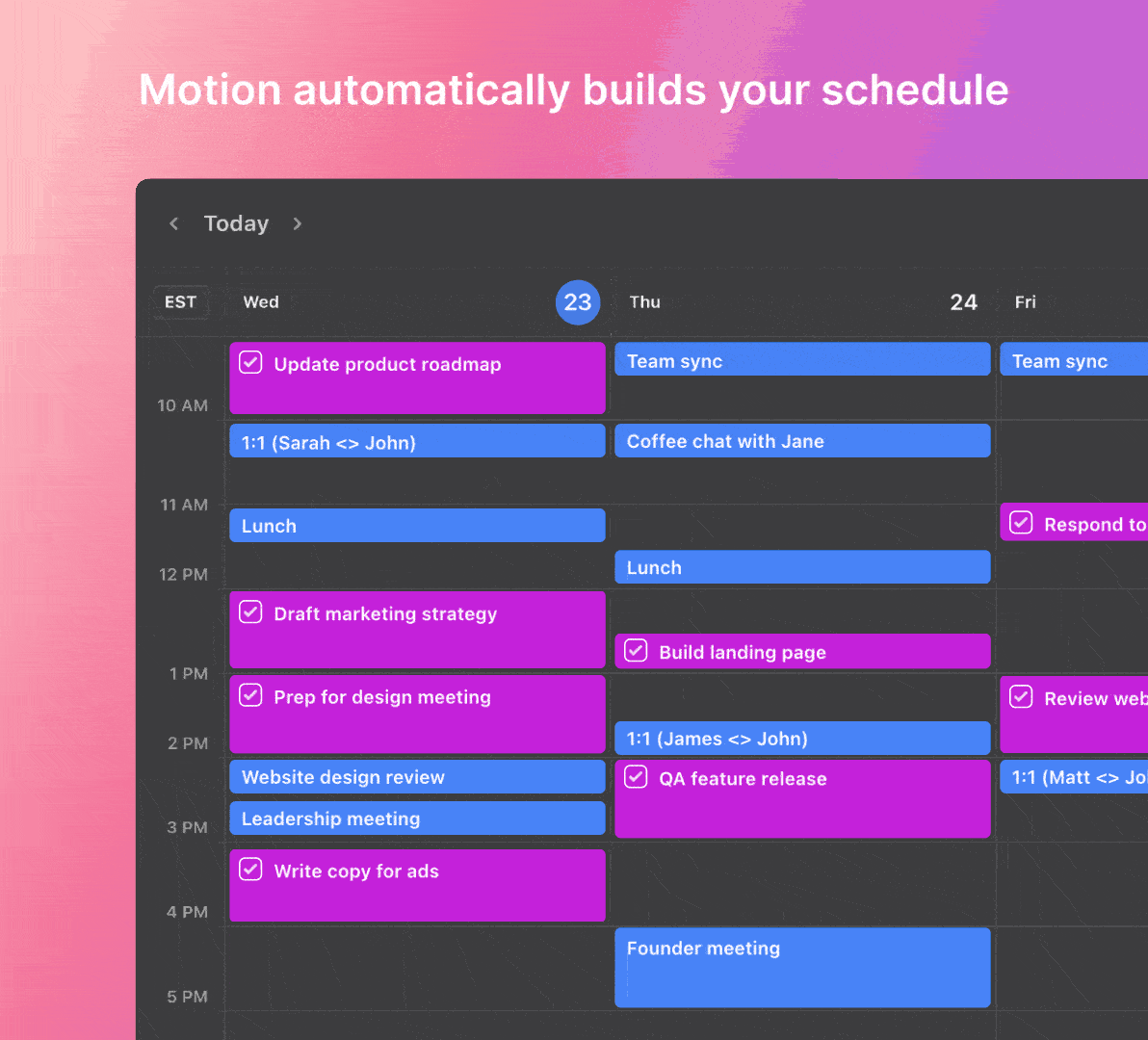What's the worst that can happen in a real estate sector project? Let's count the ways.
- Construction setbacks
- Permit bottlenecks
- Unforeseen logistical issues
- Stakeholders operating in isolation
- Miscommunication derailing critical decisions
- Vital information lost in a bunch of emails
- ...and the list goes on
Doesn't sound like fun.
If you're in the real estate sector and are looking for a better way to deal with construction management, your day-to-day (work) life, and running a business, we've got a great idea.
This article explores ways to solve these real estate challenges with project management, including some tips for ensuring sustainable success with real estate projects.
What is the role of project management in real estate?
According to this Statista report, the total value of US private construction in 2022 surpassed 1.4 trillion USD. The same report also shows that since 2012, private-sector construction spending has steadily increased yearly.
With an ongoing rise in construction projects, effective planning, and efficient project management has become critical in delivering quality real estate development projects.
 |
Real estate development often involves long, complex projects with multiple phases. Project scheduling, delays in critical tasks, and scope changes in one phase can have a domino effect on other project phases (and the entire project timeline). This can lead to budget overruns and unhappy customers if left unchecked.
Undersized window panes for that new high-rise condo building can tank the construction timeline and cost thousands (if not millions) in additional "holding" costs.
Real estate development project management involves planning, executing, and overseeing tasks to achieve specific goals within time and budget constraints. Put together, this can mean healthier bottom lines and client satisfaction.
What does a real estate project manager do?
Project managers in the real estate industry are like captains, plotting a ship's course and keeping it on track to reach its destination.
Here are some of the primary duties of a project manager in real estate:
Project planning
Meticulous project planning is the foundation for completing any project, including real estate projects. No project can be successful if the PM doesn't know what to achieve, how, and when.
Identifying the project’s goals and objectives is the first step of any comprehensive project plan.
The next order of business is to estimate the cost, time, and resources needed to complete the project. To complete the plan, detailed tasks, milestones, checklists, and other essential elements must be prepared. How else would you measure progress during the execution of the project?
The construction industry is volatile. Time, quality, and cost management are only doable if detailed planning is done beforehand. Pardon the pun, but a solid, detailed plan is like a strong foundation for a building that won't collapse.
Resource allocation
Resource management can make or break a project, and this couldn't be more true than it is with real estate project management.
From architects and designers to contractors, there's never a shortage of troops, tasks, and custom workflows you have to keep an eye on
Don't do this right, and you risk blowing up the project budget and schedule.
Cost Management
The project manager must maintain tight control of the expenditures and timelines. No easy feat for any project, but it's especially challenging for real estate endeavors.
Developing cost control measures and contingencies to avoid budget overruns (and ensure timely completion) is critical in the real estate industry.
Collaboration
Teamwork makes dreams work. There's probably no better secret weapon for a project manager than fostering team collaboration.
One way to do so is by establishing effective communication channels among project team members, key stakeholders, and the customer. (Can't stress the importance of client communication enough.) The architects, contractors, and engineers involved in a project need a direct line of communication with each other to keep critical tasks moving according to the project schedule.
Project managers must also be transparent and update stakeholders immediately on project developments (and issues). It's also the job of a project manager to address and resolve conflicts before they affect the project's progress.
Tracking project progress
Project managers rely on KPIs to track the quality of work done using tracking tools and KPIs.
Daily monitoring of the project lifecycle makes identifying and managing potential risks easier before they cause any real damage.
Project management tools can help track time, maintain quality standards, and control project costs. From a central dashboard, managers can see the status of the entire project and any individual task.
The project manager must also document each project's progress. Proper documentation makes it easy to create reports to present to stakeholders (and customers).
Benefits of real estate project management
Successful project management can be a boon to any business, including those in the real estate industry. Here are a few top benefits in no particular order:
Budget and time management
It took 7.2 months on average in 2021 to build a house consisting of 1-unit buildings, according to this Statista report. Within only one year, the time increased by 1.1 months. The time required to deliver a construction project is also rising due to higher demand.
 |
It's imperative that you stay on top of your project budget and construction schedule. Unforeseen circumstances can take you off your budget and schedule fast. (And hopefully, you've made some contingency plans for those situations)
And no better way to track your and your team's time than with a project management software tool. Time management becomes a cinch, and you can track spending and budgets easily.
Risk management
As the adage goes, risk management is how grownups manage projects. And there's no shortage of risks in real estate development work.
Effective project management includes risk planning and management. You should identify potential risks during the project planning phase, prioritize them according to probability (of happening) and impact, and develop mitigation plans for each.
For example, during contract negotiations for supplies, you sense that some of your suppliers might be hard-pressed to deliver on time, so you contact other suppliers to keep in your back pocket should the original suppliers fall through.
Increase in efficiency
When applying project management principles and standardized processes to detailed planning, budgeting, team communication, and resource allocation, you tend to improve operational efficiency.
Think of a construction site as one giant machine with many moving parts. When those parts all work and are in synch, it not only feels like everything is running smoothly but also increases the chances of project success.
Challenges faced by real estate project managers
Keeping a project on track is no easy feat, no matter the type of project management. Real estate projects are no different. Some common challenges that can have a particular impact on real estate projects are:
Legal issues
Legal issues like contractual disputes or environmental compliance are common in real estate projects. These legal disputes can arise from contractors, suppliers, government agencies...etc. and slow down (or even stop) the progress of the project.
 |
Clear and well-drafted contracts are essential to minimize the risk of contractual breaches. Keeping local authorities in the loop and following land use regulations are essential.
Due diligence, regular legal compliance checks, and QA policies are (also) ways to stay away from legal disputes and keep your project on track.
Market changes
Real estate markets are unpredictable. Inflation, interest rate spikes, and economic changes heavily influence real estate projects. Changing demographics and buyer trends can also affect the demand for certain real estate types. And government policy changes, subsidies, and tax credits affect market prices.
Staying on top of the changing real estate market economics requires closely tracking market trends and policy changes. This is also where risk planning and management can save your day.
Budget overruns
75% of projects were delivered late, over budget, or both, according to an IDC survey commissioned by Procore in 2021. Budget overruns are a dominant issue in real estate. To solve budget overruns, efficient planning plays a big role.
Detailed budgeting and rigorous cost management, as well as risk management (again!), are essential for commercial projects. So are KPIs and milestones that can trigger warnings before a budget blows up.
Most project management software solutions, including Motion, have built-in functionality that can help you track against those KPIs and project milestones.
4 tips for better real estate project management
Here are four practical tips we have compiled for ensuring sustainable success in real estate project management.
 |
Detailed planning
Start with the project goal(s) and then dig into scope, budgeting, risks, actionable tasks, and the project timeline. The more detailed, the better.
It might seem like a lot of work upfront, but it'll pay off in the long run.
As General Eisenhower once said, “Plans are worthless, but planning is everything.”
Foster collaboration
A project where stakeholders, developers, regulatory authorities, and team members can collaborate in real time is essential for the success of any real estate project.
Everyone involved should have access to project information and documentation 24/7. Even better if everyone could also communicate in the same place.
Remember, full transparency is your friend.
And the best way to establish a communication channel where everyone can do all of this is with project management software.
Contingency plans
We've already stressed risk management. As part of that, you'll want contingency plans for any risks you identify upfront.
Triggers should be put in place for when risks turn into issues. Think about the project budget and schedule. Having reserve funds for managing those scenarios would be helpful if and when the time comes.
Don't forget to communicate, continuously review, and collaborate on those risks.
Use project management software
We're beating a dead horse, but project management software is key to keeping a tight leash on tasks, project progress, budget, information, documents, and timelines.
 |
Even better if you're real estate project management software helps you do things automatically, like build out schedules from specific and repetitive tasks.
 |
This is where Motion can be your best friend.
Manage real estate projects with Motion
Motion can make your project management easy (and effective).
You can easily create and assign tasks to team members using Motion. With automatic task deadline reminders and task prioritization features, you can be sure team members are keeping on schedule. Motion also comes with a feature to book meetings with one click. This can be useful for booking regular meetings with stakeholders and customers.
Some other ways to use Motion:
- Better time management with features like task prioritization and delivery date reminders.
- Task and to-do list items are automatically assigned to team members, who can integrate those with the calendars they're already using.
- Easier collaboration among project members with instant notifications, tagging features, document sharing, and private messaging.
Finally, you can integrate Motion with your Gmail, Outlook, and iCloud calendars, plus apps like Google Meet, Zoom, and Zapier. You can also track project developments on the go with the Motion mobile app.
Start managing your real estate projects with Motion's 7-day free trial today.

As a freelance B2B SaaS writing for companies like Prerender.io, BenchmarkEmail, SecoMapp, DOCUDavit, and more, my approach to creating quality content begins with robust research and hard data.




